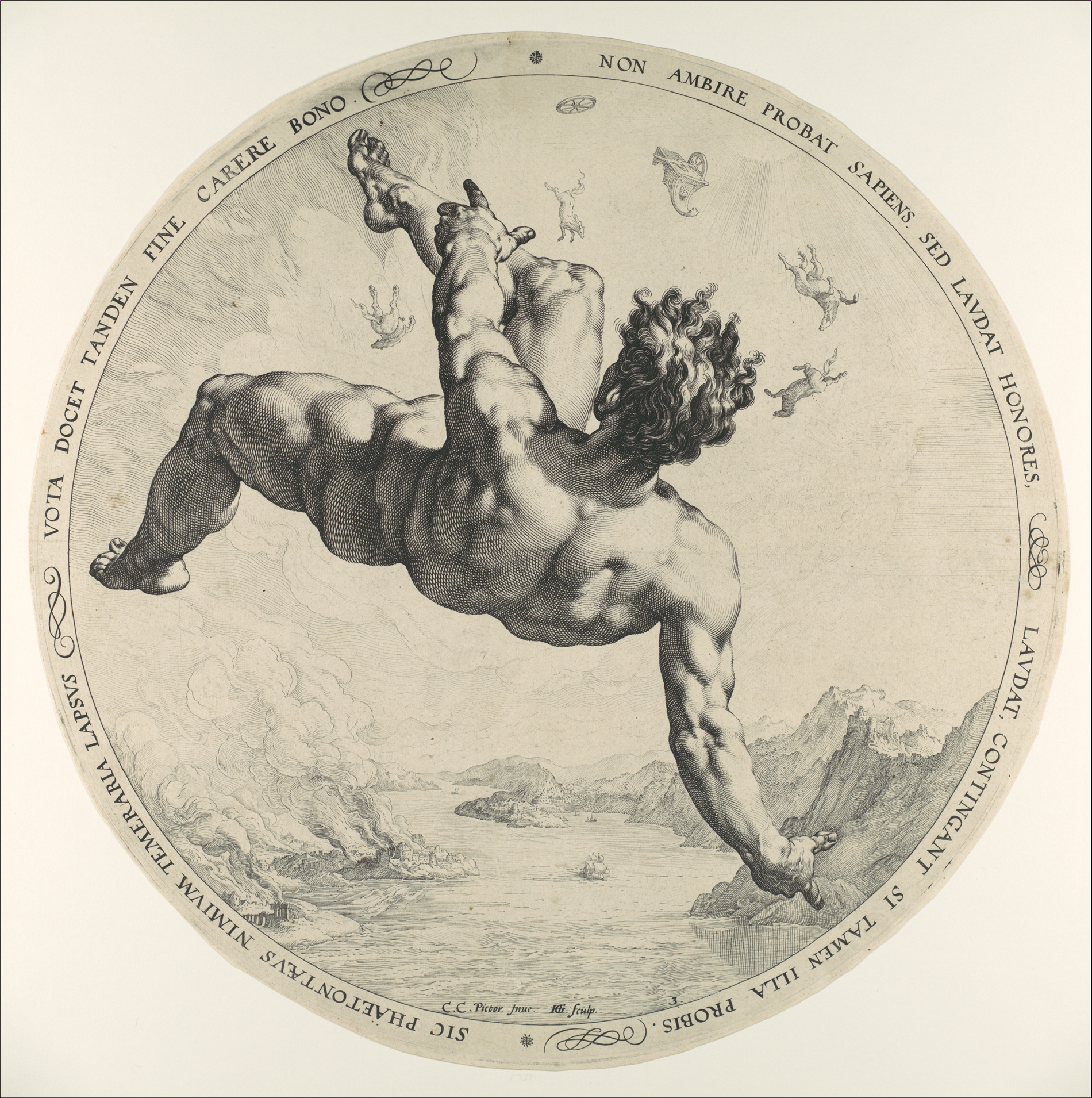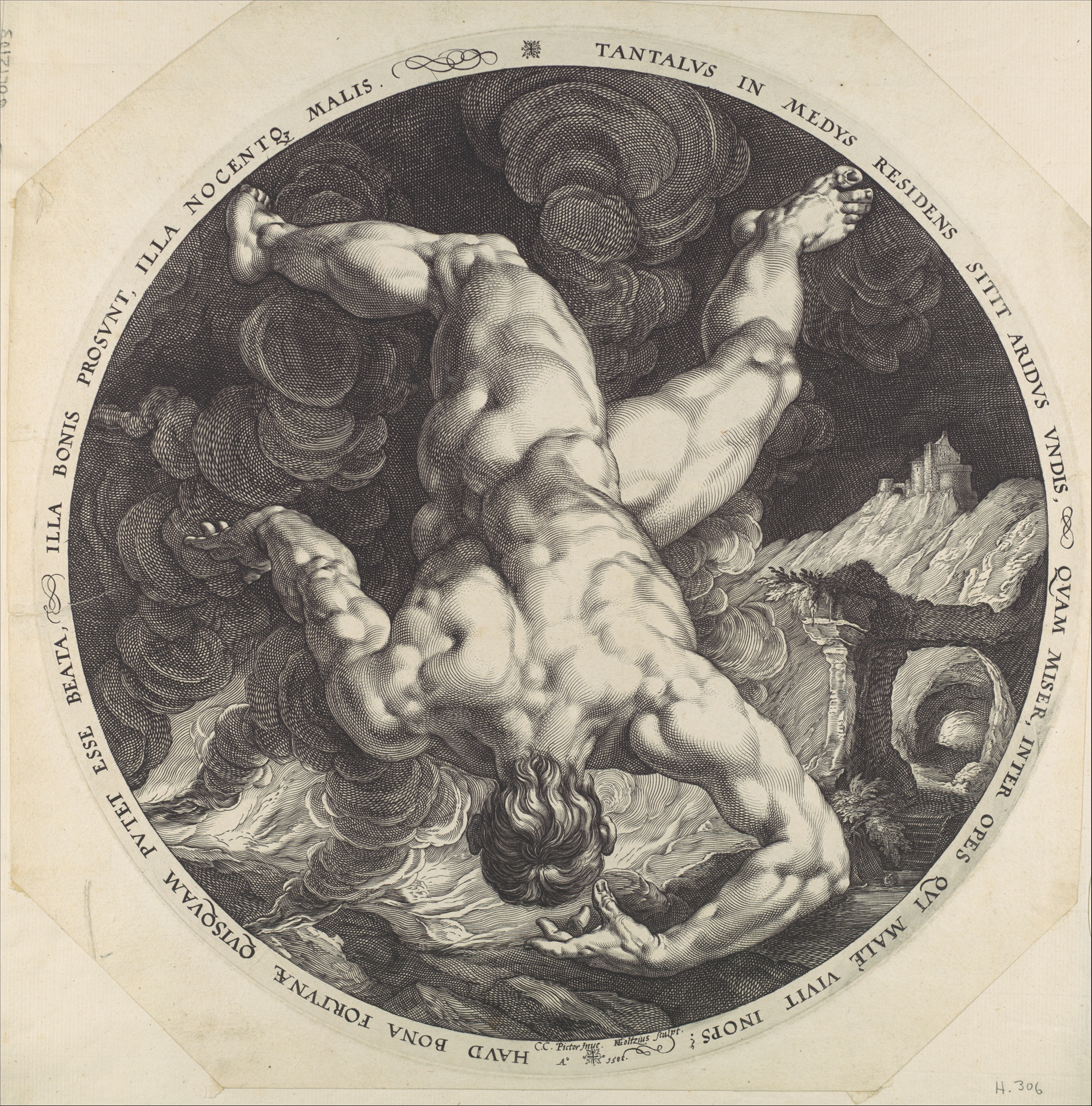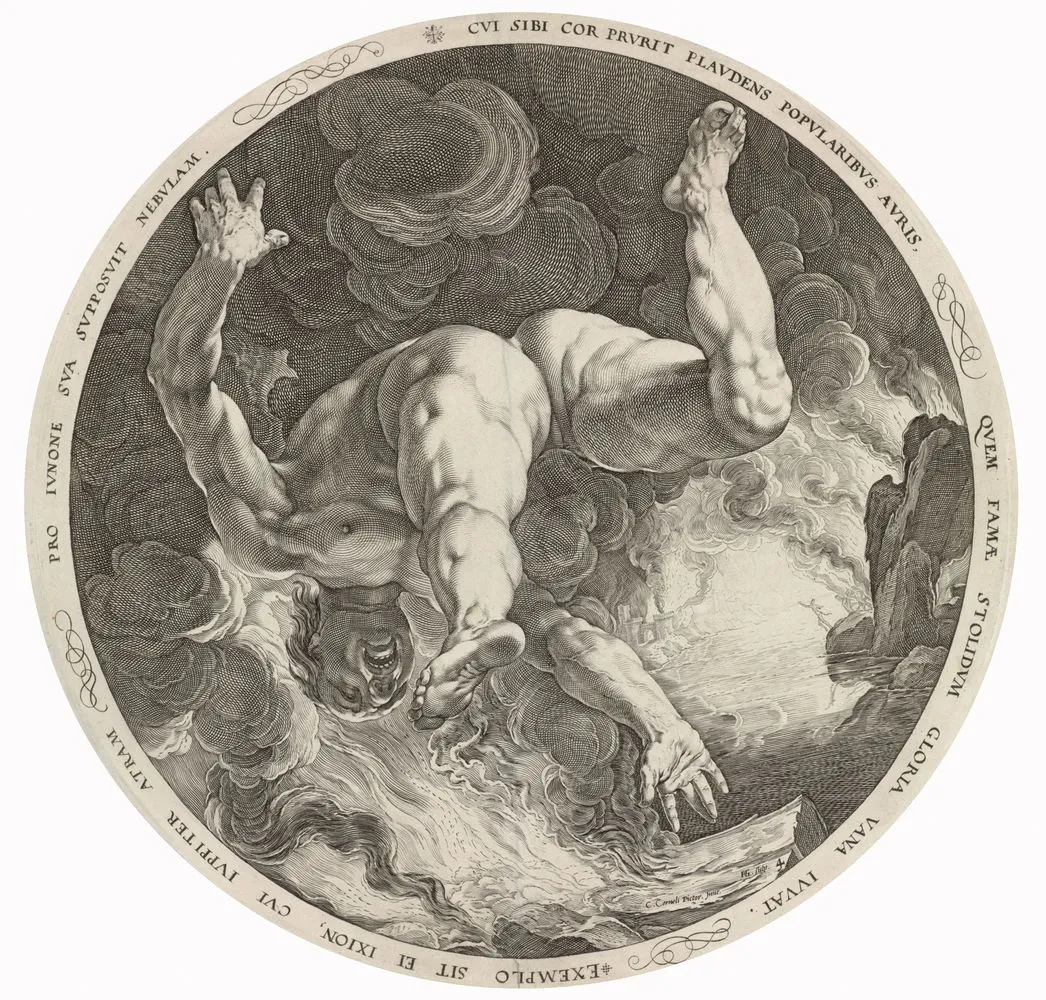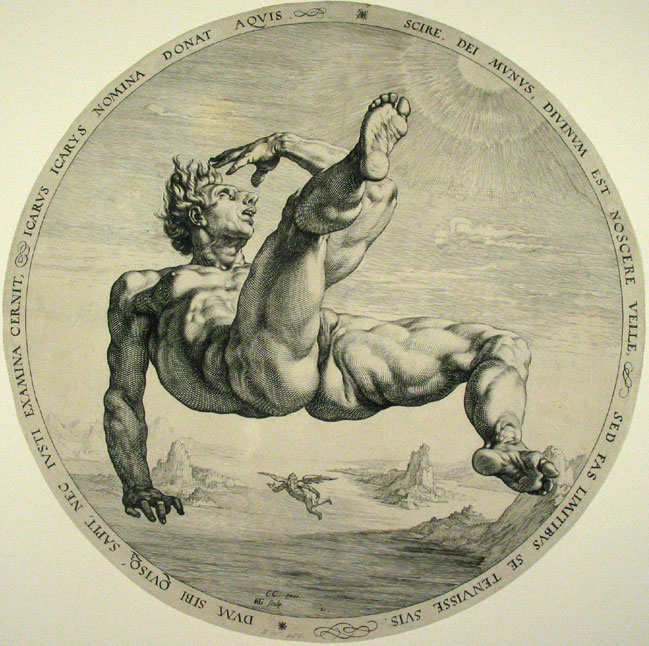Four Disgracers
Prints by Hendrik Goltzius
Icarus
 |
Met Phaeton |
 |
Met Tantalus |
 |
| Ixion |
Each of our fallers tried to enter the realm of the gods and was punished for his hubris.
The four seemingly varied poses are in fact more or less the same pose (one leg bent down, the other raised; one arm raised, the other lowered) viewed from different angles.
________________
The Phaethon tondo is one of a series of engravings known as The Four Disgracers (also called Falls) – four figures from Greek mythology who defied the gods for which they were punished in the form of a fall. The other three sheets of the series depict Icarus, Tantalus (1588, the only plate to be dated) and Ixion. Phaethon was the son of the god Helios. Phaethon was showing off his divine origin to his friends, which he wished to prove by persuading his father to let him drive the sun chariot drawn by four fiery steeds across the heavens. However, he soon lost control and the runaway horses exited the trajectory, nearly knocking down the cope of heaven. Then the chariot came too close to the earth, setting it on fire. To prevent further damage, Jupiter knocked down Phaethon with a bolt of lighting, hurling him into the river Eridonos. The scene is executed in perfect, three−dimensional illusion, the youth’s body appears to plunge any moment into the viewer’s own space. The bottom part of the tondo shows a river and the earth with cities ablaze, all of this veiled by remarkable aerial perspective, rendered in the delicate engraving technique.
________________
To escape from King Minos of Crete Daedalus fashioned two pairs of wings for himself and his son Icarus, made of metal feather held to a leather frame by beeswax. Before trying to escape the island, he warned his son to follow his flight path and not fly too close to the sun or the sea.Icarus disobeyed his father and soared higher into the sky. The heat from the sun softened the beeswax. He realized that he had no feathers left and fell into the sea.
________________
Most famously, Tantalus offered up his son, Pelops, as a sacrifice. He cut Pelops up, boiled him, and served him up in a banquet for several gods in order to test their omniscience. The gods became aware of the gruesome nature of the menu, so they did not touch the offering; only Demeter, distraught by the loss of her daughter, Persephone, absentmindedly ate part of the boy's shoulder.
Tantalus's punishment for his act was to stand in a pool of water beneath a fruit tree with low branches. Whenever he reached for the fruit, the branches raised his intended meal from his grasp. Whenever he bent down to get a drink, the water receded before he could get any.
Over his head towers a threatening stone.
__________________
Zeus took pity on Ixion and brought him to Olympus and introduced him at the table of the gods. Instead of being grateful, Ixion grew lustful for Hera, Zeus's wife, a further violation of guest–host relations. Zeus found out about his intentions and made a cloud in the shape of Hera and tricked Ixion into coupling with it.
Ixion was expelled from Olympus and blasted with a thunderbolt. Zeus ordered Hermes to bind Ixion to a winged fiery wheel that was always spinning. Therefore, Ixion was bound to a burning solar wheel for all eternity, spinning across the heavens.

No comments:
Post a Comment